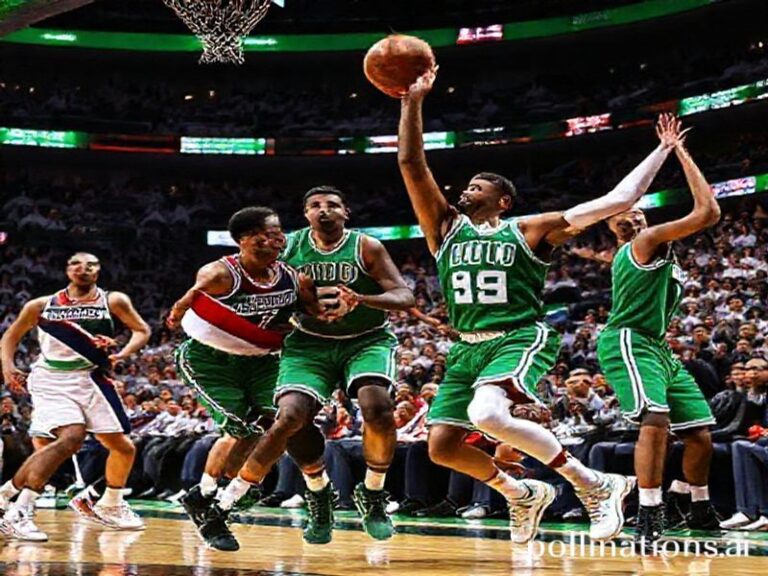Puebla vs Pachuca: How a Mexican Football Match Explains Everything Wrong with Our Global Circus
**The Ballad of Puebla-Pachuca: When Mexican Football Mirrors Our Global Existential Crisis**
In the grand theater of human folly, where nations rise and fall like tide-tossed sandcastles, there exists a peculiar spectacle that somehow captures our collective predicament with startling accuracy: a Liga MX match between Puebla and Pachuca. Yes, dear reader, while the world’s billionaires plot their escape to Mars and democracy performs its death rattle across multiple continents, 22 millionaires in shorts chase a sphere of manufactured leather across manicured grass—proving that our species has learned absolutely nothing from millennia of spectacular failures.
The Puebla-Pachuca rivalry, for those who’ve been too busy watching civilization’s slow-motion train wreck, represents something far more profound than mere athletic competition. It’s a microcosm of our global order: two cities separated by 130 kilometers of Mexican asphalt, united in their mutual disdain and shared delusion that football supremacy somehow matters in a world where coral reefs are dying faster than your grandmother’s houseplants.
Puebla, that colonial jewel where Spanish conquistadors once built churches atop Aztec temples—because cultural sensitivity apparently wasn’t trending in 1531—now channels its imperial ambitions through a football club owned by a businessman who presumably understands that owning a sports team is slightly more socially acceptable than hoarding medieval art. Meanwhile, Pachuca, a mining town that spent centuries extracting Earth’s treasures to fuel other nations’ industrial revolutions, has reinvented itself as a football powerhouse—proof that even the most thoroughly exploited communities can find meaning in the beautiful game’s empty promises.
The international significance? Where does one begin? Perhaps with the fact that both clubs feature players from five continents, creating a United Nations of athletic mercenaries who’ve been purchased, traded, and discarded with the emotional detachment of a hedge fund manager liquidating a failing portfolio. These modern-day gladiators, many earning more in a month than their childhood neighbors see in a decade, perform for global audiences streaming matches on platforms owned by tech giants who pay taxes in the same imaginary jurisdiction where Elvis lives with Tupac.
The betting syndicates—those pillars of international finance operating from jurisdictions with corporate tax rates lower than a limbo bar at a contortionist convention—handle millions in wagers from every corner of our dying planet. From Manila to Manchester, from Lagos to Los Angeles, humanity collectively decides that predicting whether Puebla’s striker can outmaneuver Pachuca’s goalkeeper matters more than, say, addressing the fact that we’re turning our oceans into plastic soup.
But here’s where the cosmic joke reveals its punchline: this meaningless exercise in tribal identification, this weekly ritual of manufactured passion, might actually be keeping us sane. While climate scientists update their doomsday predictions and politicians discover new depths of shamelessness, the Puebla-Pachuca match offers something increasingly rare—rules that everyone agrees to follow, outcomes determined by merit rather than market manipulation, emotions that are real even if the enterprise itself is gloriously pointless.
In a world where truth has become negotiable and justice appears optional, football remains refreshingly honest: you either score more goals or you don’t. The ball doesn’t care about your social media following, your father’s connections, or your offshore accounts. It crosses the line or it doesn’t. No amount of lobbying, bribery, or Twitter tantrums can change the score.
Perhaps that’s why we cling to these provincial entertainments with religious fervor. While everything else crumbles—institutions, ecosystems, social contracts—Puebla versus Pachuca offers the radical simplicity of binary outcomes in an increasingly quantum universe. The joke, of course, is that we’re the punchline: creatures intelligent enough to split atoms but stupid enough to believe that winning a football match constitutes meaningful achievement.
The final whistle blows, fans celebrate or commiserate, and tomorrow the world will still be burning. But for ninety minutes, we pretended it mattered. And really, what more can you ask from a species that invented both the Sistine Chapel and the nuclear bomb?







